Nail changes that indicate health problems
 Nails changes can indicate health problems (collage: RBC-Ukraine)
Nails changes can indicate health problems (collage: RBC-Ukraine)
Excessive diets, poor or inadequate nutrition can lead to serious health problems. This primarily refers to nutritional deficiencies, when the body does not receive enough important nutrients essential for normal functioning. Lack of vitamins, minerals, proteins, fats, or carbohydrates can even alter the appearance of our nails, says Ukrainian dietitian Tetiana Lakusta, the expert, who discusses the most common examples of nail changes and the corresponding deficiency states.
Key points on nutritional deficiencies and risk groups
The expert says everything we consume with food is "our building blocks for hormones, skin, hair, and nails." Therefore, some deficiencies can be detected by changes in nails and skin.
The risk groups for developing dangerous conditions associated with nutritional deficiencies include:
- children and adolescents
- pregnant women
- women during lactation (breastfeeding)
- elderly people
They need to check for deficiencies through laboratory tests.
Nutritional deficiencies can threaten athletes, vegans, and individuals taking such medications as:
- proton pump inhibitors (a group of drugs that reduce or suppress the secretion of gastric juice)
- combined oral contraceptives (COC)
- metformin (an antidiabetic drug)
- Parkinson's disease medications
- peptic ulcer medications diuretics (which initiate or accelerate fluid removal from the body)
- blood pressure medications
Eating disorders (EDs) are also influenced by:
- forced restrictive eating (due to illness, captivity, or other adverse circumstances)
- alcohol
- smoking
- Helicobacter pylori infection
- gastrointestinal diseases accompanied by malabsorption post-bariatric surgery condition (for combating obesity and overweight)
How deficiencies reflect on nails
The so-called Muehrcke's lines, horizontal light lines on the nail, may indicate hypoalbuminemia (a laboratory phenomenon in which the level of albumin in the blood decreases).
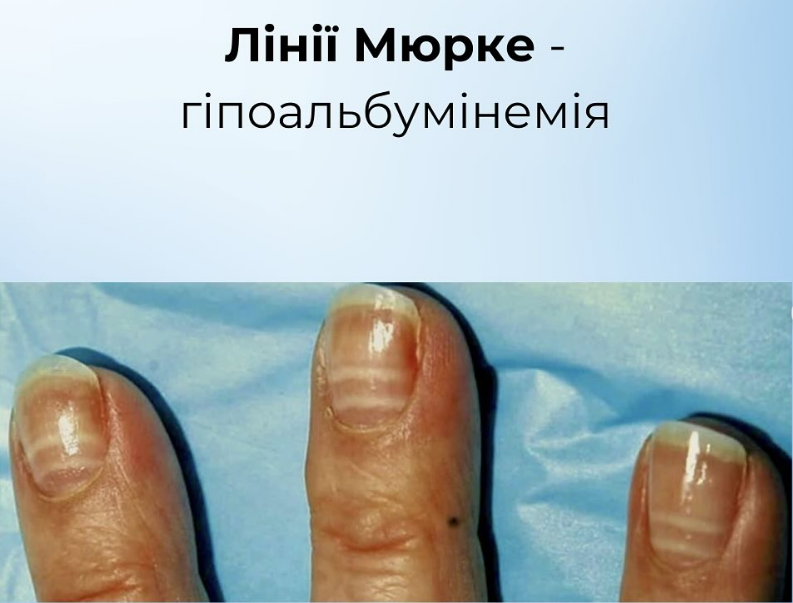
Muehrcke's lines (screenshot: instagram.com/dr.lakusta)
Сoilonychia: concavity of the nail in longitudinal and transverse directions, resulting in a spoon-like shape, may indicate iron deficiency in the body.
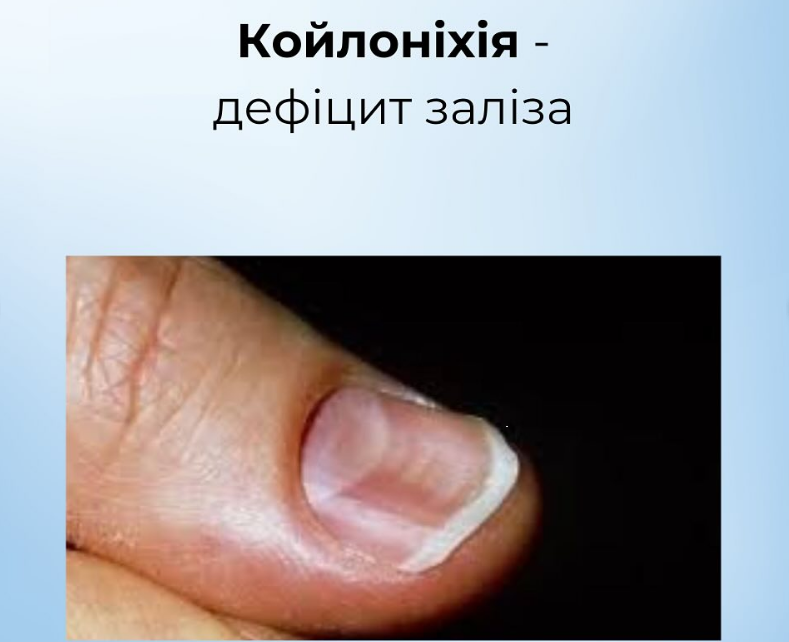
Coylonichia (screenshot: instagram.com/dr.lakusta)
Onychorexis: dystrophy of the nail plate characterized by longitudinal splitting (fissure), may be a sign of iron and zinc deficiency.
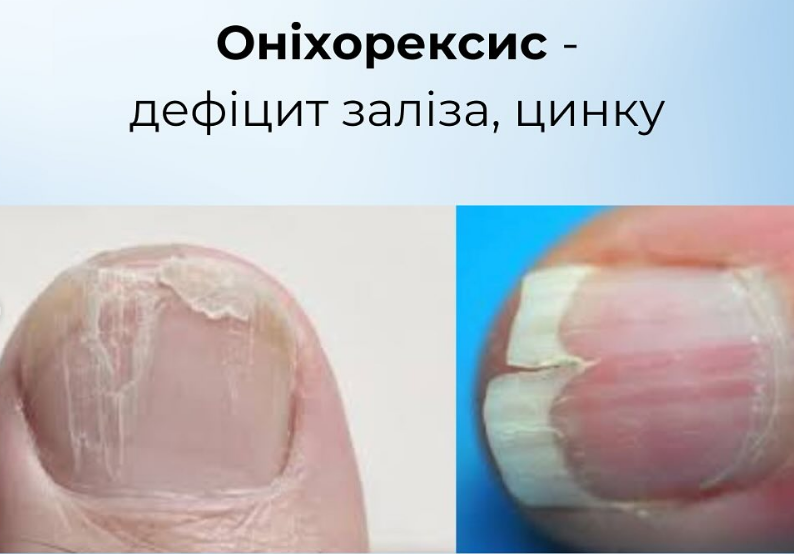
Onychorexis (screenshot: instagram.com/dr.lakusta)
Terry's nails, when the majority of the nail plate becomes light, indicate malnutrition and are often found in elderly people.
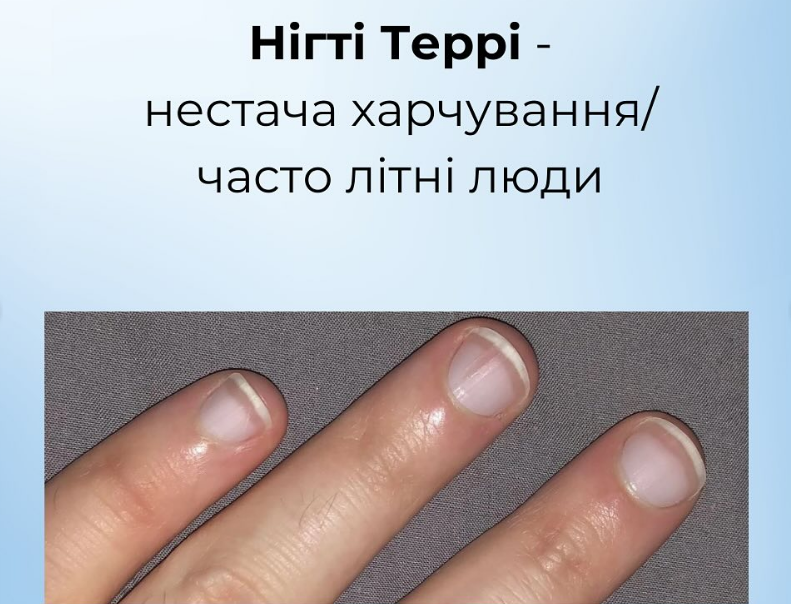
Terry's nails (screenshot: instagram.com/dr.lakusta)
Nail clubbing: significant convexity of the nails, may indicate chronic diseases or chronic anemia or iron deficiency.
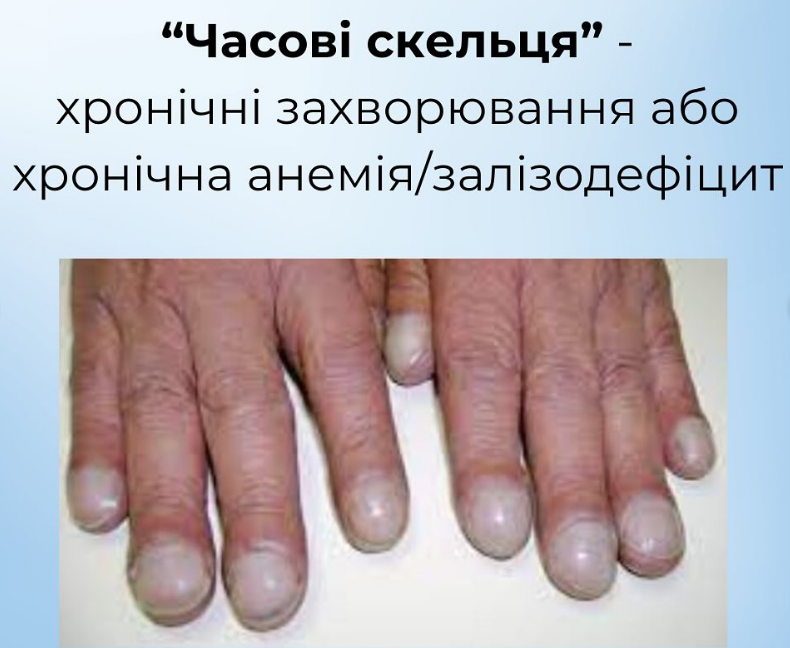
Nail clubbing (screenshot: instagram.com/dr.lakusta)
Beau's lines: transverse lines on the nail plate, can occur due to protein deficiency, overall undernourishment, or alcohol consumption.
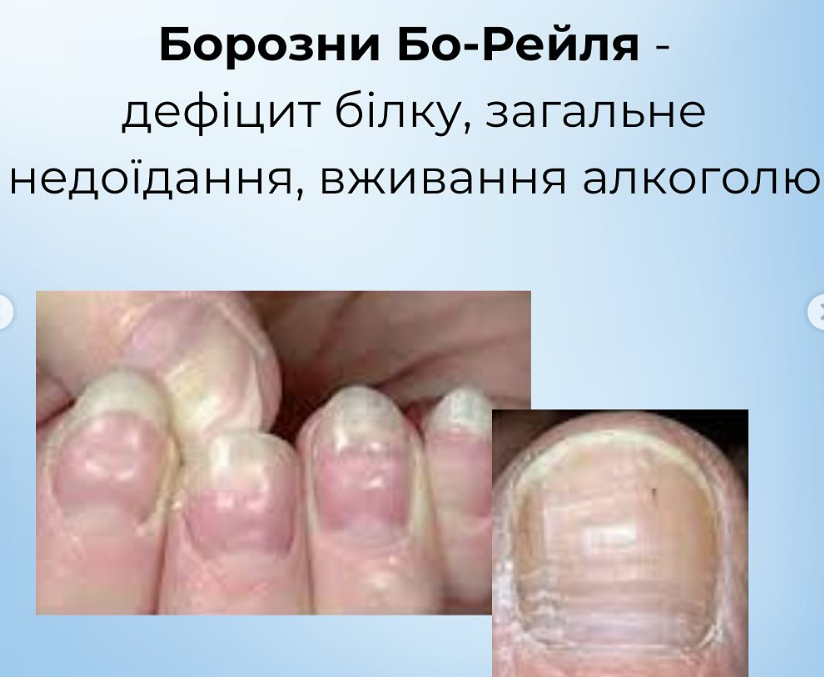
Beau's lines (screenshot: instagram.com/dr.lakusta)
Hapalonychia: when the nails are thin and brittle,can indicate a deficiency of vitamins A, B6, C, D, and calcium.
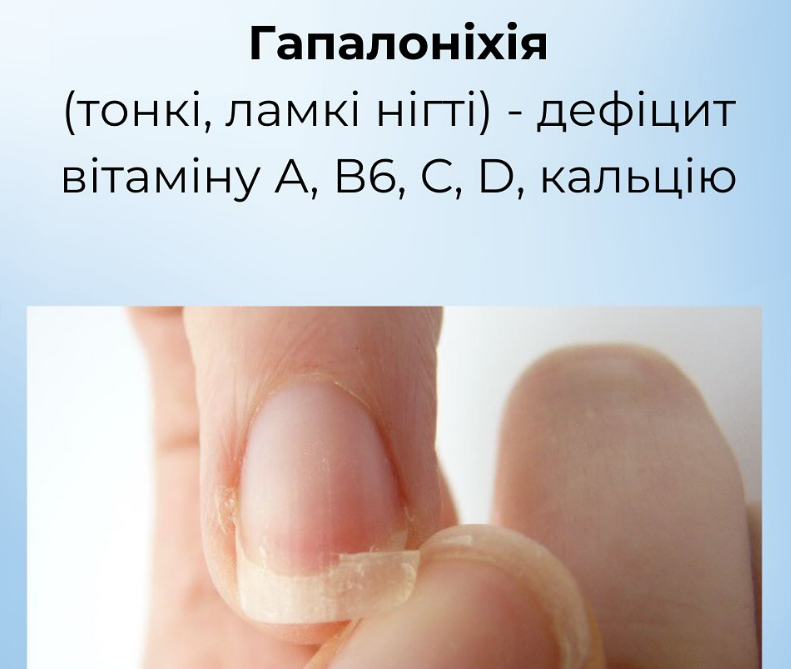
Hapalonychia (screenshot: instagram.com/dr.lakusta)
"It is important to understand! Correcting deficiencies is not just about correcting tests with asterisks, but identifying the causes, selecting correct doses, and prescribing preventive measures. Therefore, a doctor should handle this," concluded Tetiana Lakusta.
Read about 7 signs of vitamin deficiency you can't ignore.
This material is for informational purposes only and should not be used for medical diagnosis or self-treatment. Our goal is to provide readers with accurate information about symptoms, causes, and methods of detecting diseases. RBС-Ukraine is not responsible for any diagnoses that readers may make based on materials from the resource. We do not recommend self-treatment and advise consulting a doctor in case of any health concerns.

